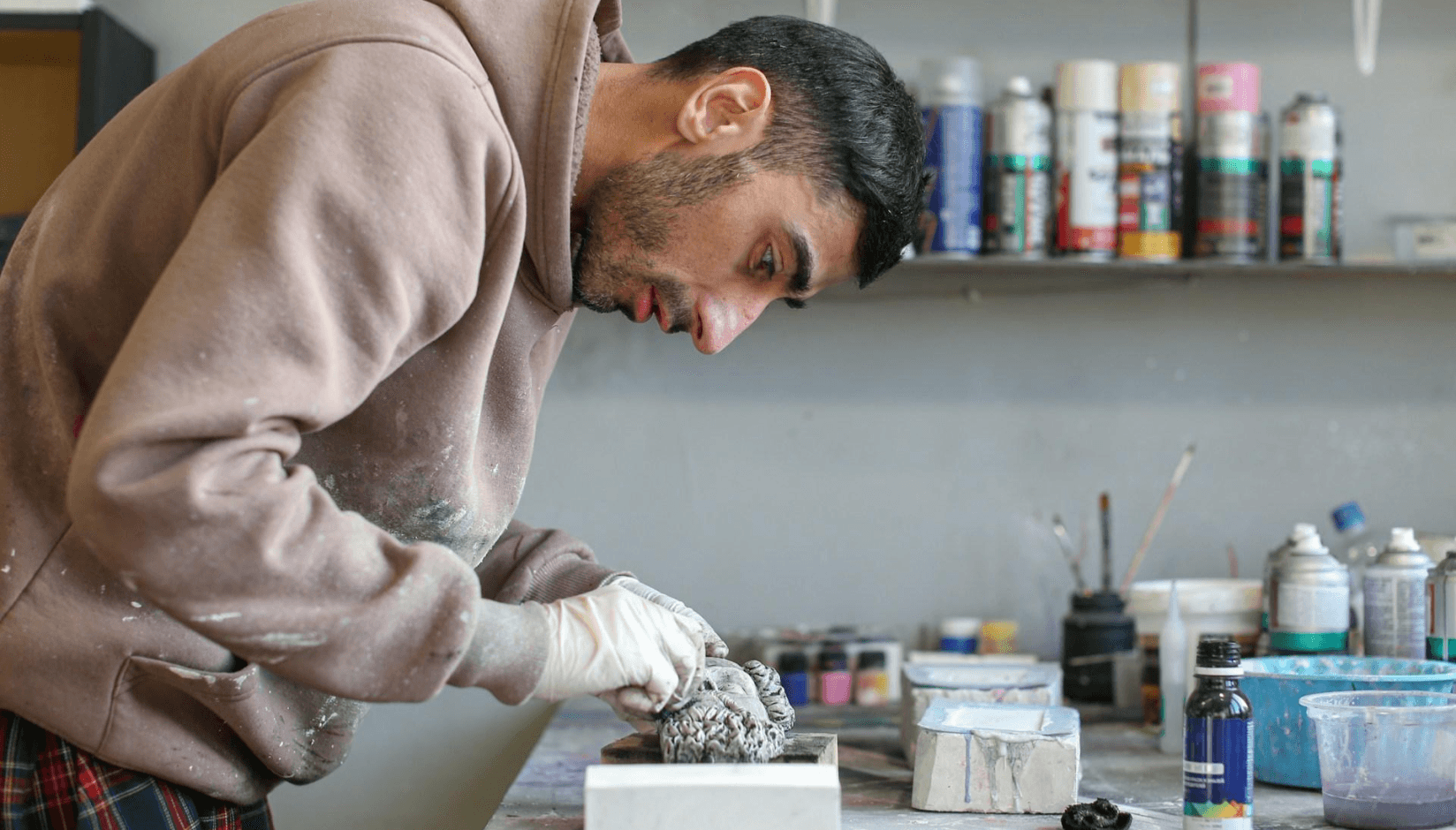- Features
- Solutions
- Pricing
- Resources
- Contact
- Book a demo
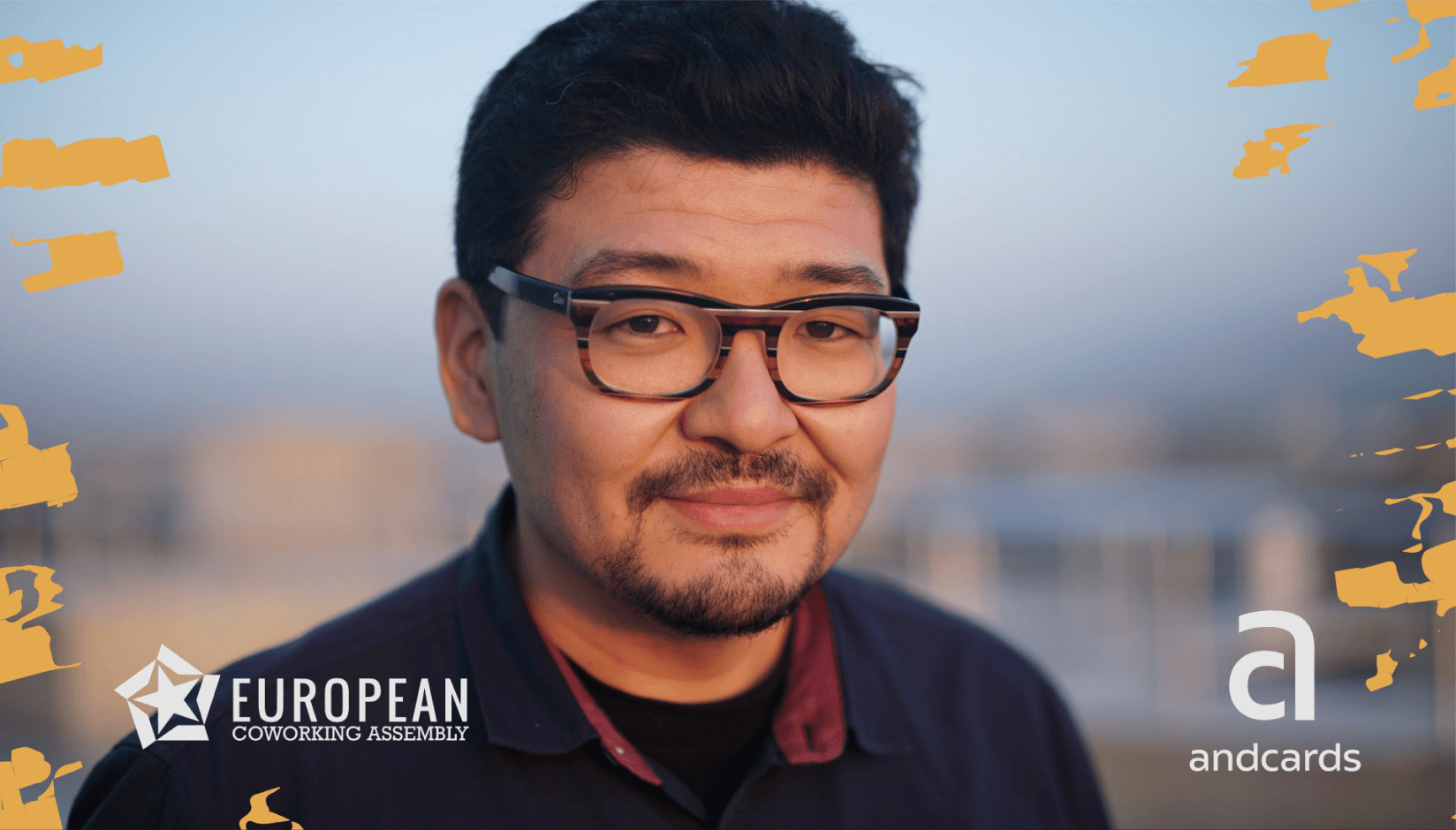
Table of Contents
Welcome to the first episode of the Visionaries podcast series brought to you by Coworking Values podcast, the European Coworking Assembly, and Spacebring. Our journey exploring diverse coworking spaces begins here, and we are thrilled to have you along for the ride. In this episode, we travel to the fascinating country of Kyrgyzstan and speak with Daniar Amanaliev, co-founder and bandmaster of ololo Creative Hub. This visionary entrepreneur is pioneering creative economy transformation and leading a small entrepreneurial revolution in Kyrgyzstan, creating conditions for growth and progress in a region where most governments are authoritarian.
At ololo, Daniar has built a thriving community of nomad-friendly coworking spaces that have evolved from a simple music studio into nine unique locations. We are excited to learn more about the growth strategy that has made ololo so successful, as well as the unique features that set it apart from other coworking spaces.
But perhaps most importantly, we want to understand the social impact that ololo is making in Kyrgyzstan and beyond. How is this innovative space contributing to the growth of democracy in the region? What does the future hold for ololo and its talented community of entrepreneurs?
We have a lot to discuss with Daniar, so let's get started!
1. Could you tell us more about Kyrgyzstan?
Kyrgyzstan is a post-Soviet country and one of the 15 republics of the former Soviet Union. What makes it special is that since gaining independence in 1991, the country has experienced three revolutions. It's a challenging road to democracy and freedom for post-Soviet and post-socialistic countries, particularly in this region where many countries are ruled by presidents who have been in power for over 30 years.
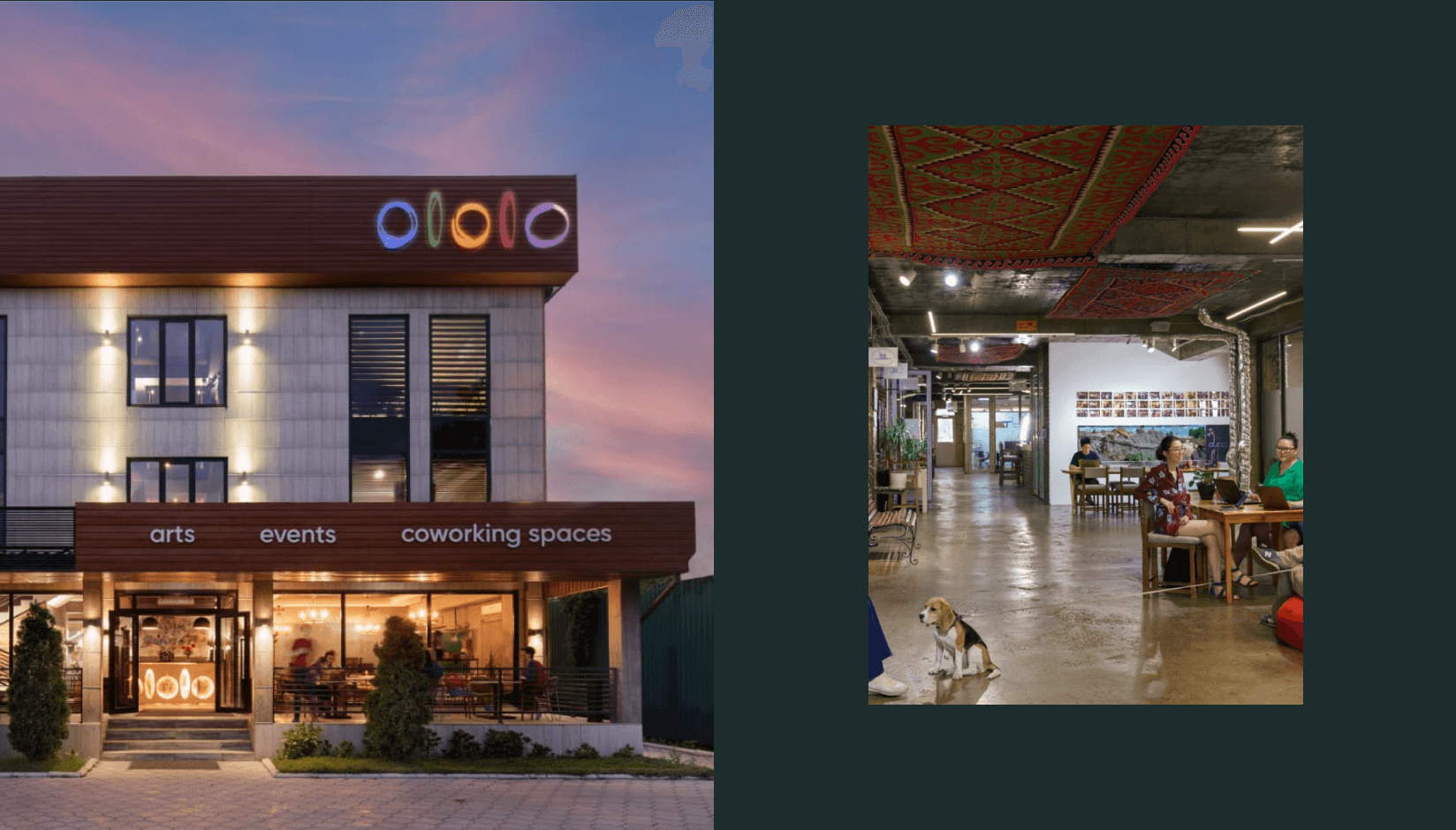
The Kyrgyz nation has a rich history as former nomads and was known for its military prowess. They were part of Genghis Khan's army and were famous for building good weapons and being skilled horsemen. They say that the Kyrgyz are born on horses and the horse is the wings of the nomads. It's no surprise that such a nation would not want to be ruled by a dictator. It's not easy, but I'm proud of my people's free spirit.
Despite economic challenges, this free spirit could be the fuel for the country's development. Kyrgyzstan has the potential to become a hub for startups and innovators, as freedom is a fundamental ingredient for innovation.
2. What about your language?
Historically, we have our own Kyrgyz language, which is part of the Turkic language group. This means we can easily understand people from neighboring countries such as Kazakhstan, Uzbekistan, Turkmenistan, Azerbaijan, and Turkey.
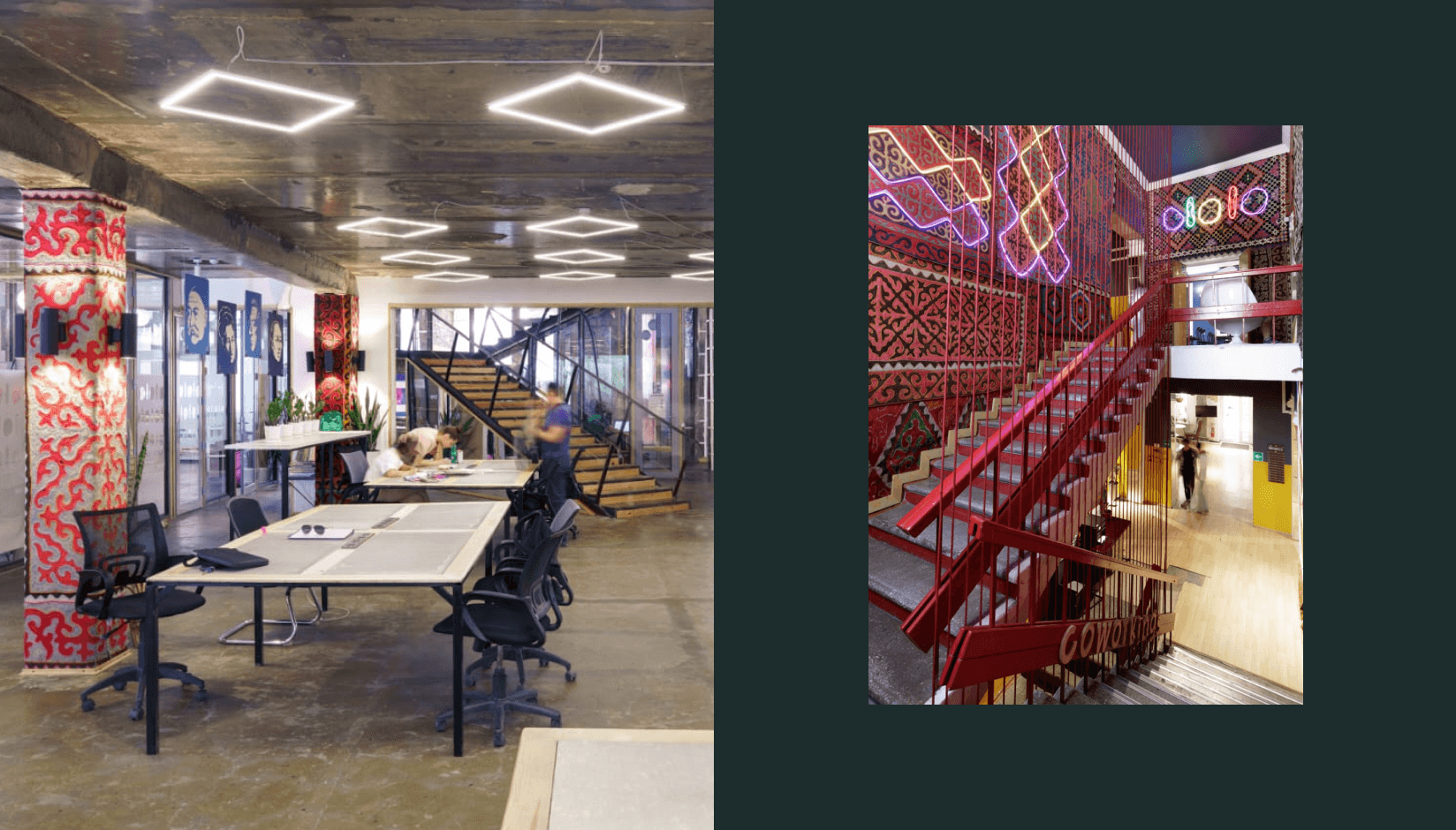
Interestingly, we can also understand many other nations in Russia that speak languages similar to ours, such as Tatarstan, Altai, and Khakassia. It's remarkable how language can connect people across different nations and regions, and I believe it's a testament to our shared cultural heritage.
3. What is the story of ololo? How it all started?
After working for 12 years in one of the biggest travel agencies in Central Asia, I decided to start something that would last a lifetime and be something big. I allowed myself a month of the restart, living by the "always yes" principle and doing things that I always wanted to do but never had the time for. One of those things was learning to play the piano, which I found to be energizing. Together with my piano teacher, wife, and friend, we decided to open a place where adults could learn to play instruments, write stories, paint, and engage in other creative activities.
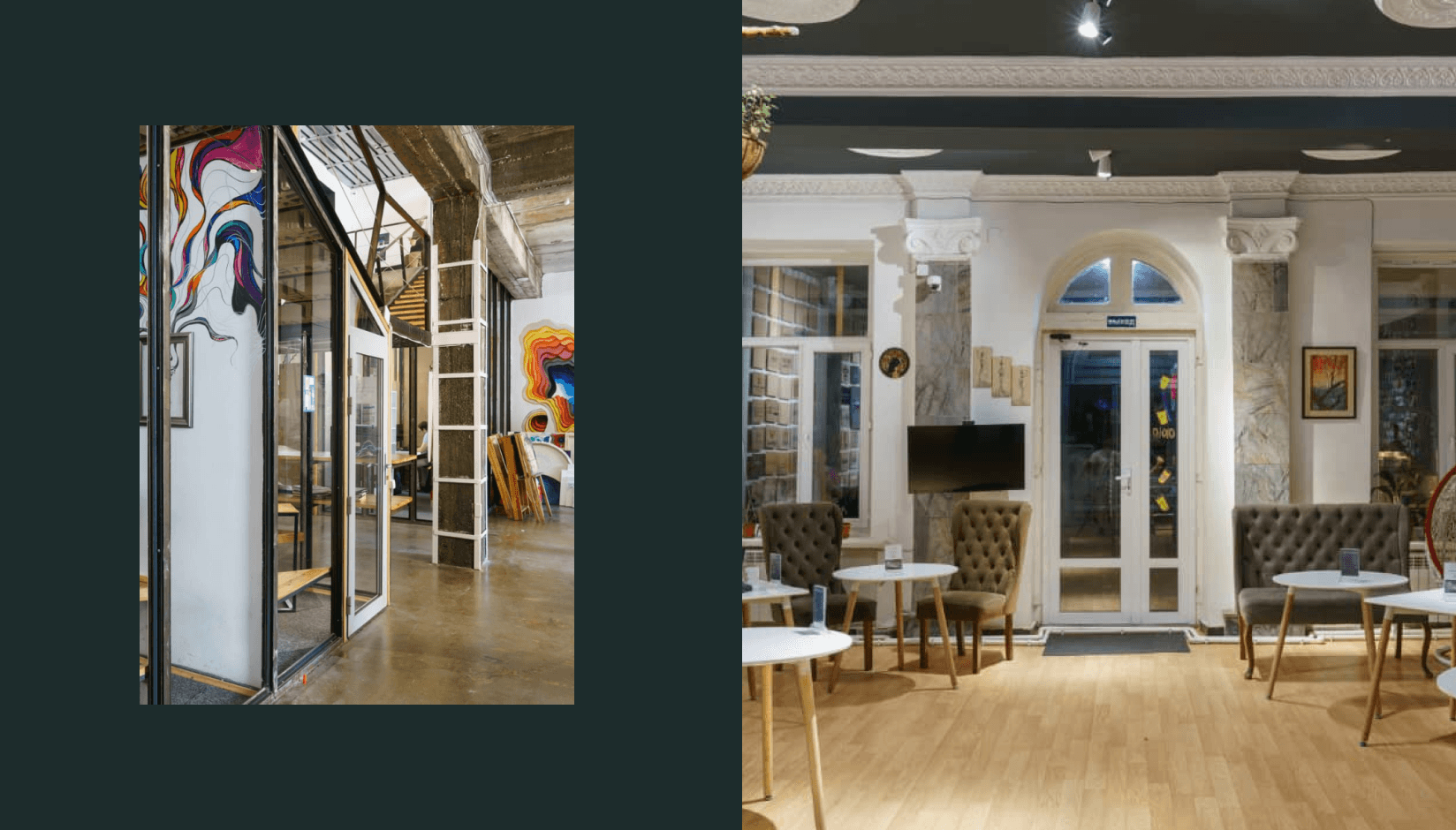
We started with approximately 120 Euros and were successful in attracting our first customers, even though people initially told us that no one in the country needed art.
We had no business plan when we started, and it grew quickly, with promotions done through Facebook. After two months, we had to move to a larger space as we were filled to capacity. We were then offered a huge building and invited other startups doing creative and interesting things to join us. This turned out to be a great decision, and we now have nine spaces, which we call Creative Hubs, to distinguish ourselves from coworking spaces. We are more focused on radiating creativity into the environment rather than just creating a product for people to sit inside. We hold events, unite creative people, and lobby for tax regimes to support the creative industry.
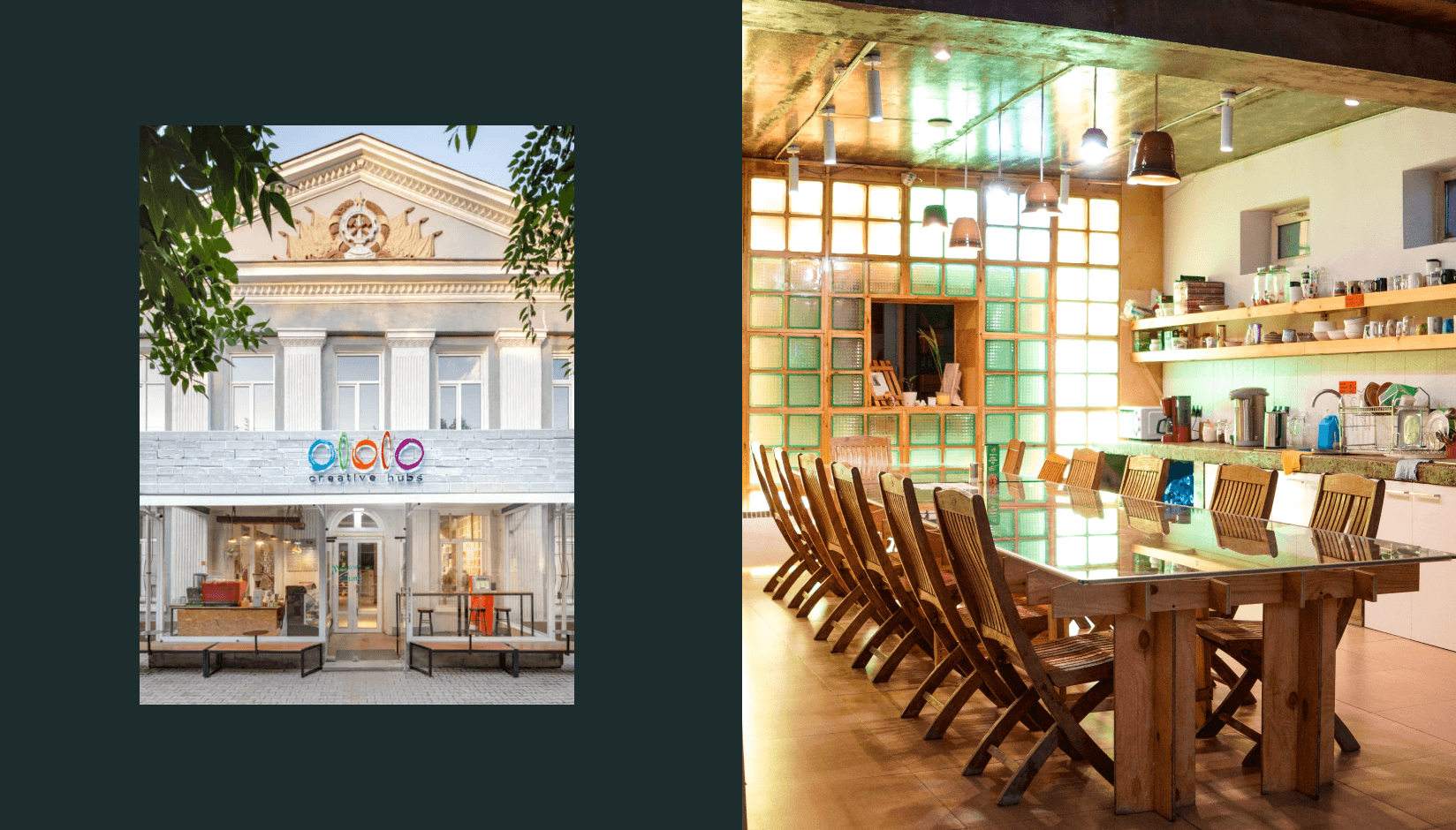
As for the name ololo, it was offered by our friend and we chose it because it was catchy and memorable. We believe that one day it will become a word that means something, just like "Google." ololo creates an atmosphere where people feel safe to create, collaborate, and help each other, and spread knowledge. To me, that's what Ololo is all about.
4. Tell us about your growth and revenue model.
Our growth and revenue model is similar to a franchise, but with us managing all the spaces ourselves. We find owners of large buildings who are struggling to find a good idea for their property, which is common in any country, including Kyrgyzstan. We provide them with a concept that will help them make money with their property, turning it into a Creative Hub. We show them how many workplaces it will create, how much they will earn and spend, and how much will be left after deducting our management fee. We assure them that they will earn 20 to 50% more with us than without us.
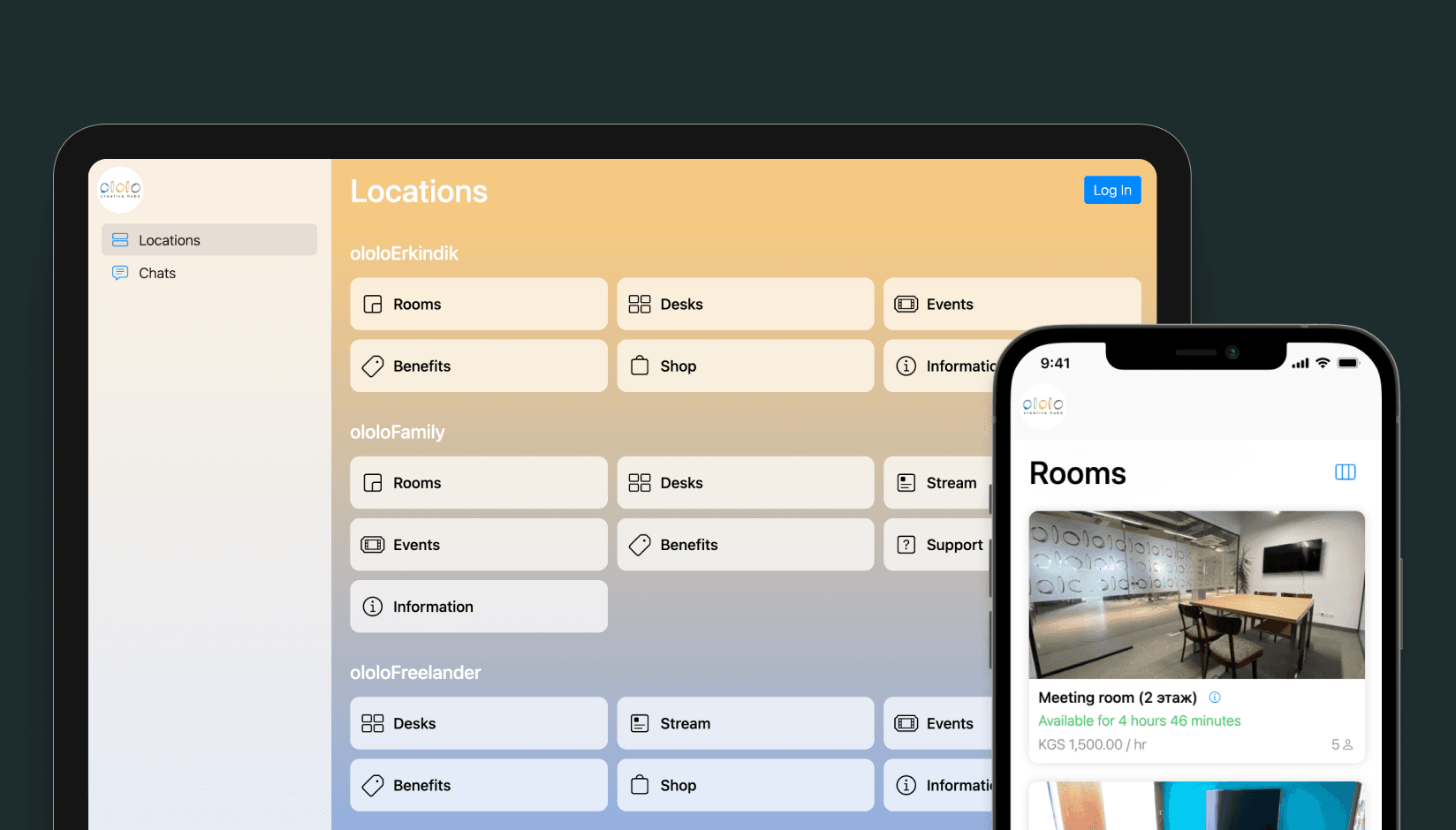
ololocity apps are an excellent way to experience ololo: sign up, book rooms, join events, and participate in the community
They invest their own money into their property, and we use that to build the place. Our team comprises of three founders, my wife and I, and our good friend. I am the bandmaster, responsible for gathering a great group of people and making sure they are playing one symphony, with everyone knowing what the strategy is. My wife is responsible for operational management, and our friend is a design genius with a great architectural vision, creating vibrant places.
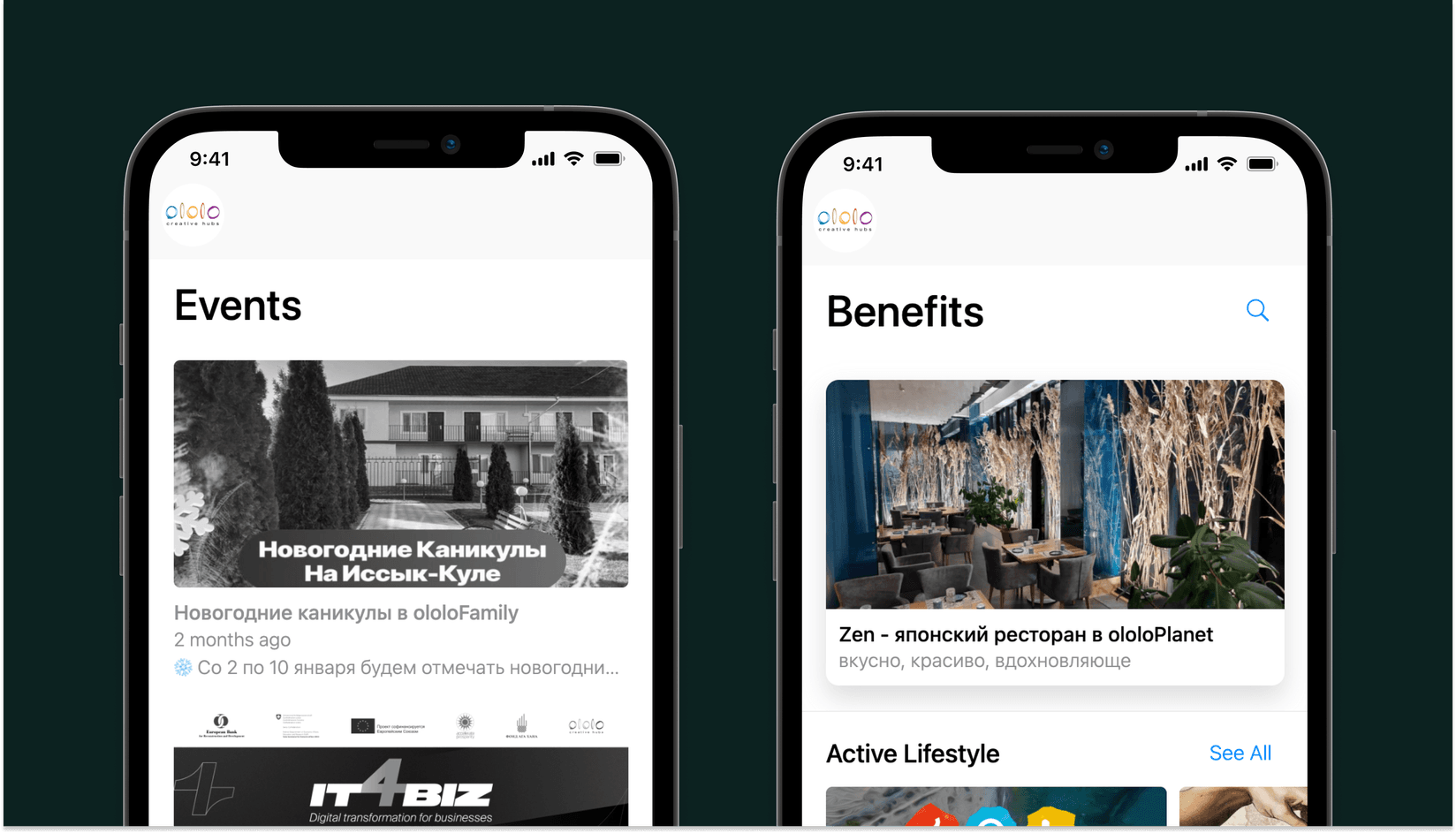
We turn the properties into Creative Hubs and run them ourselves, and my role is mostly to gather compliments, pitch presentations, and take pictures, which is something they don't want to do.
Generate recurring revenue and offer exceptional customer experience at your shared or coworking space
5. Would you say that ololo is a flat organization?
Yes, I think it's flat. While we do have people who are called managers, such as location managers, it doesn't mean that they just give orders to the community managers. In fact, community managers work closely with their location managers. And because we have so many hubs, they have their own team, and they share knowledge. For instance, we currently have a meeting of community managers where they educate each other and even replace each other when someone is leaving for vacation.
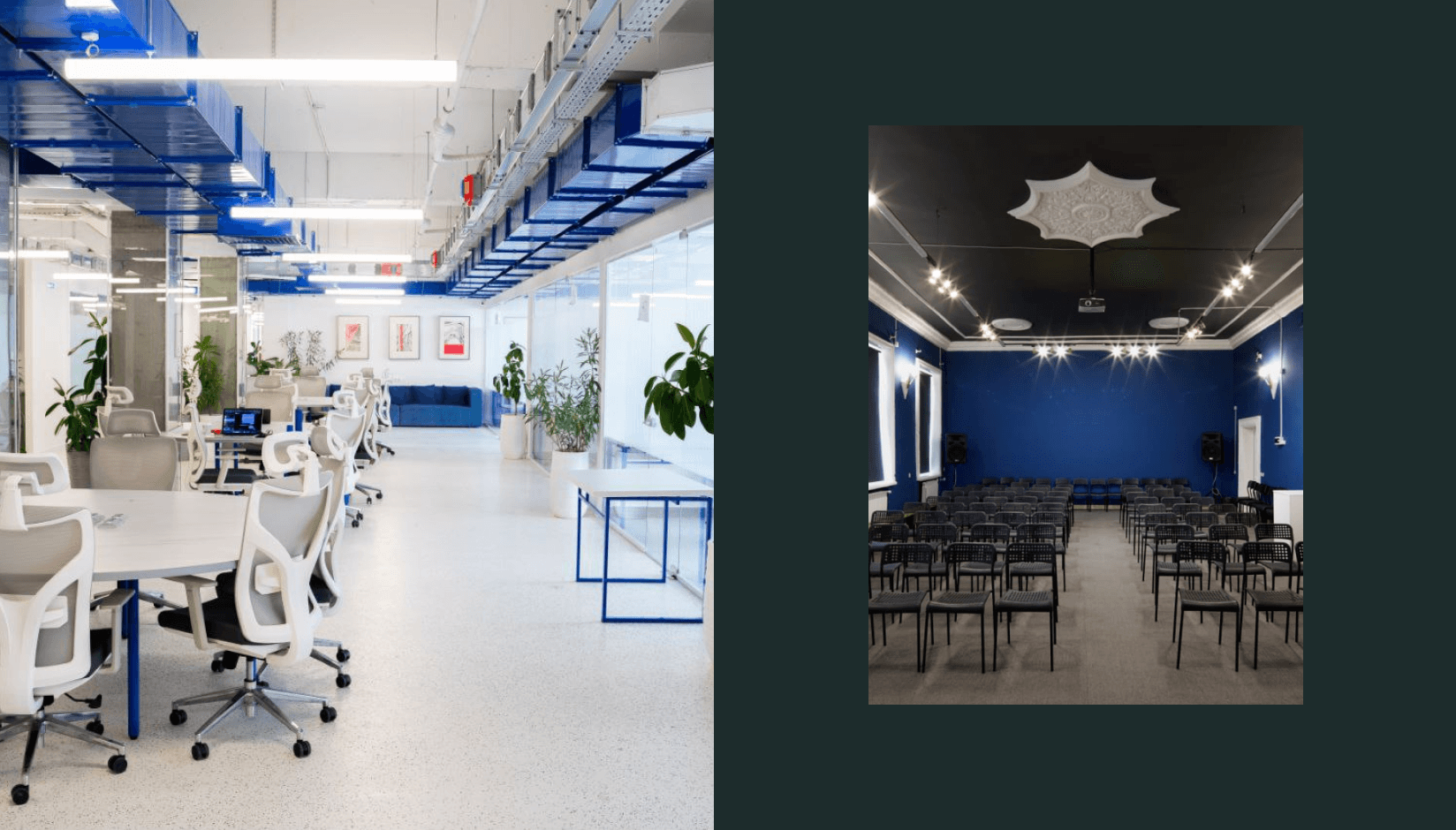
I find this organization very interesting because people come together to help out with big events. For example, last Saturday, we had the opening of our biggest hub, which is about 6000 square meters. We call it "All Over the Planet." On that day, more than 5000 visitors came to see the place. We organized more than 50 different events with 150 speakers who spoke in different parts of the building. It was a great display of teamwork.
I particularly like how the organization is structured horizontally, meaning that there is no hierarchy where someone gives orders. Instead, we work together as a team, and everyone's input is valued. I don't give orders here, and that's what makes it such a unique and exciting place to work.
6. How big is your team?
When it comes to our team, it's normally around 60 people. However, during high season, we hire many other personnel because ololo is not just a place where nomads can work. It's also a place where they can live. Currently, we run two resorts on lake Issyk-Kul, which is the biggest lake in Kyrgyzstan and one of the most beautiful places in the world. Altogether, the resorts have 600 beds, and during the summer season, they work very actively. That's when our team can grow to up to 150 or even 200 people.
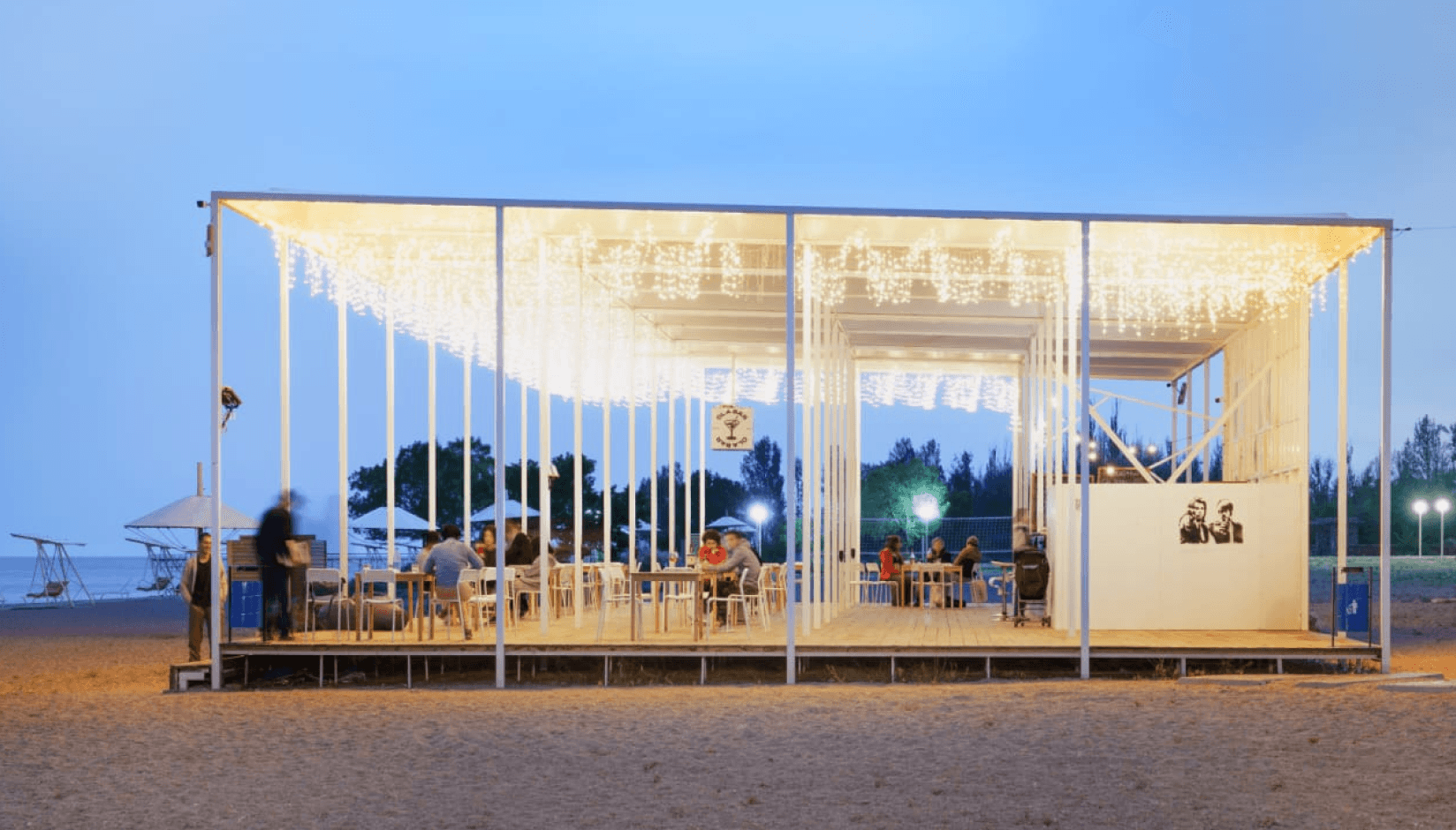
Our resorts are what we call coworking resorts. The problem we're trying to tackle is that Issyk-Kul is considered only as a place where people go for vacation to have rest. They only go there when it’s warm, and stay there for a very short time. When people stay somewhere for a short time, they don't really care about nature. They kind of use the place, don't interact with it, and don't get into harmony with it. But when you live in a place, you get into much closer relations with it. We believe that Issyk-Kul is the best place to live in Kyrgyzstan and a very good place for digital nomads.
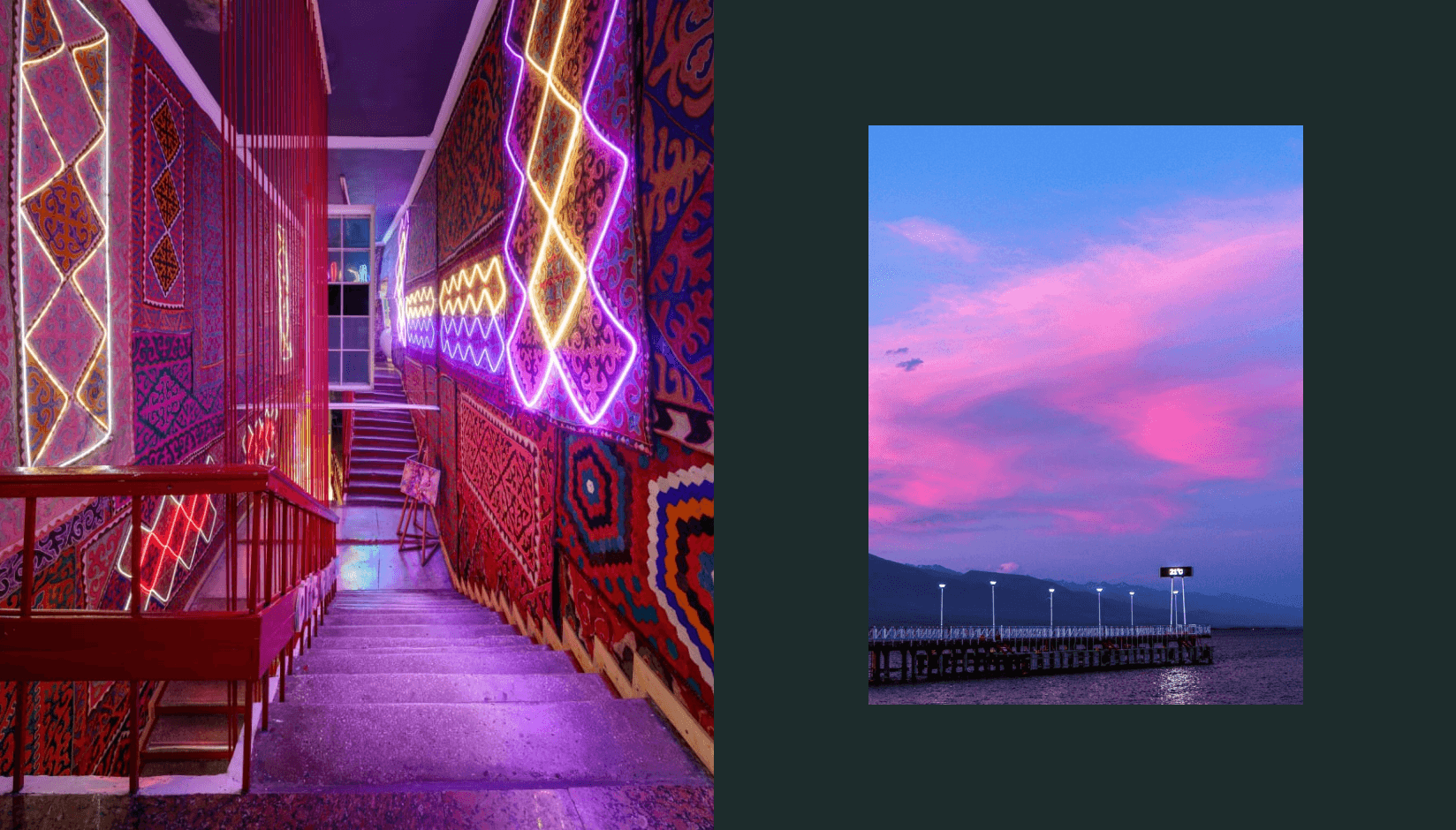
Our goal is to transform these resorts into places where digital nomads can come all year round and have good intimacy, a great atmosphere, and the energy that this huge lake gifts. They'll get great sleep because of the quality of the air, the mountains, and the lake that work very well together. There is no place in the world where I slept better than in Issyk-Kul. We want to create a place where people from the capital city would come in winter, and that's the vision.
7. Does that mean that all your initiatives are part of a bigger system?
They are actually integrated. Our focus was on creating safe spaces for innovators to take risks and create new ideas. We call our clientele innovators as they are the key to creating successful economies.
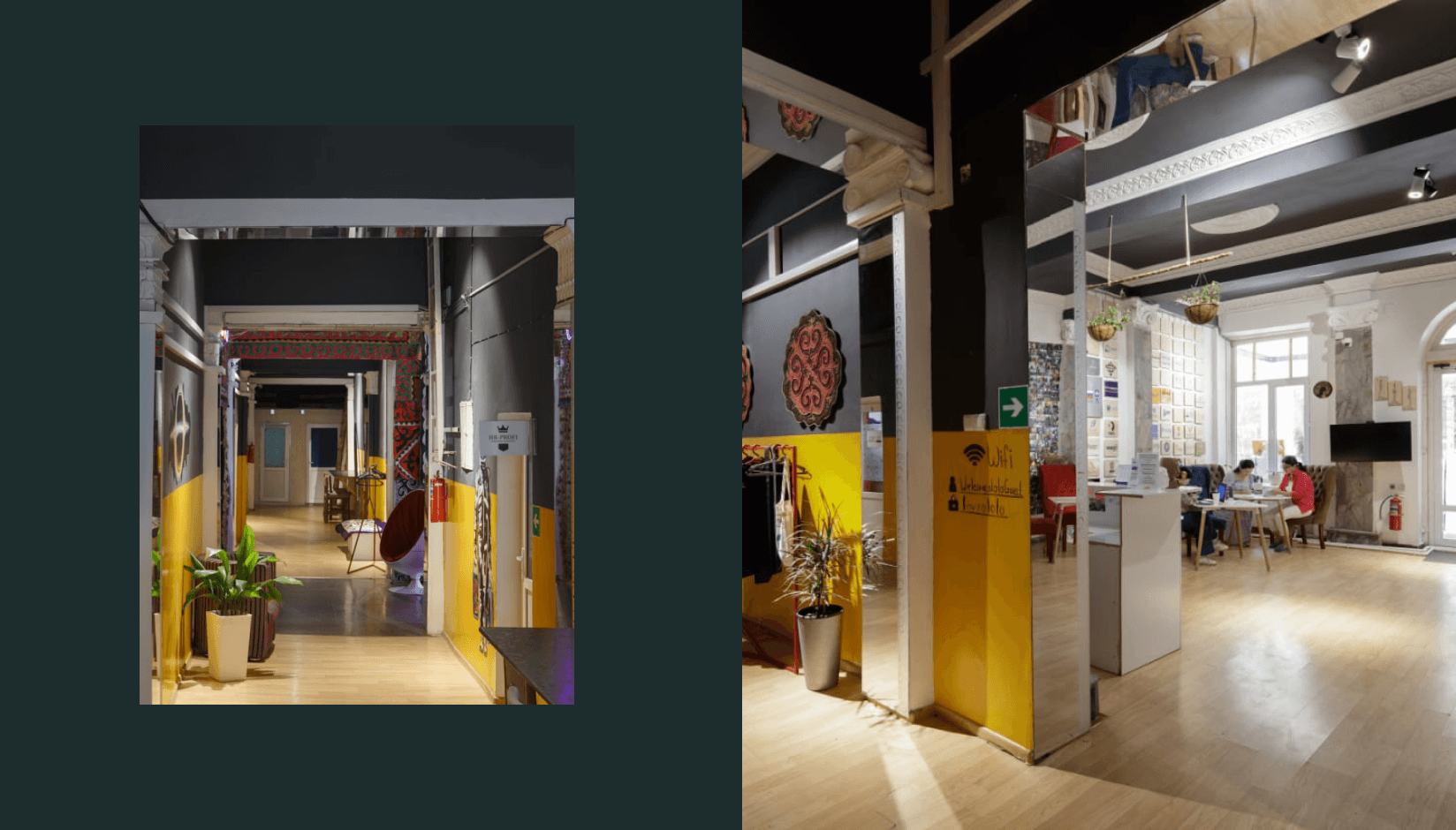
We drew inspiration from the Elliot Rogers Diffusion of Innovation chart, which highlights that 2.5% of the population in any country are innovators, and they create the innovations that make economies successful.
However, in many developing countries, the smartest and most educated people tend to leave, leading to a brain drain. This situation perpetuates inequality in the world and hinders the long-term growth of these countries.
Side note: The Diffusion of Innovation chart by Elliot Rogers is a model that explains how new ideas, products, and technologies spread and are adopted by people over time. It shows how different groups of people are likely to adopt new things at different stages, and how the adoption process can be influenced by various factors such as social norms, marketing, and peer pressure.
The model breaks down the adoption process into five stages: Innovators, Early Adopters, Early Majority, Late Majority, and Laggards. Innovators are the first to adopt a new idea, while Laggards are the last. The Early Adopters and Early Majority are in between, with the Early Adopters being more adventurous and the Early Majority being more cautious.
To address this issue, we are building Creative Hubs and safe spaces in developing countries like Kyrgyzstan, with the hope that people will decide to stay in their countries, especially since remote work is becoming more popular. This initiative is particularly relevant for small towns and rural areas, which often have fewer opportunities.
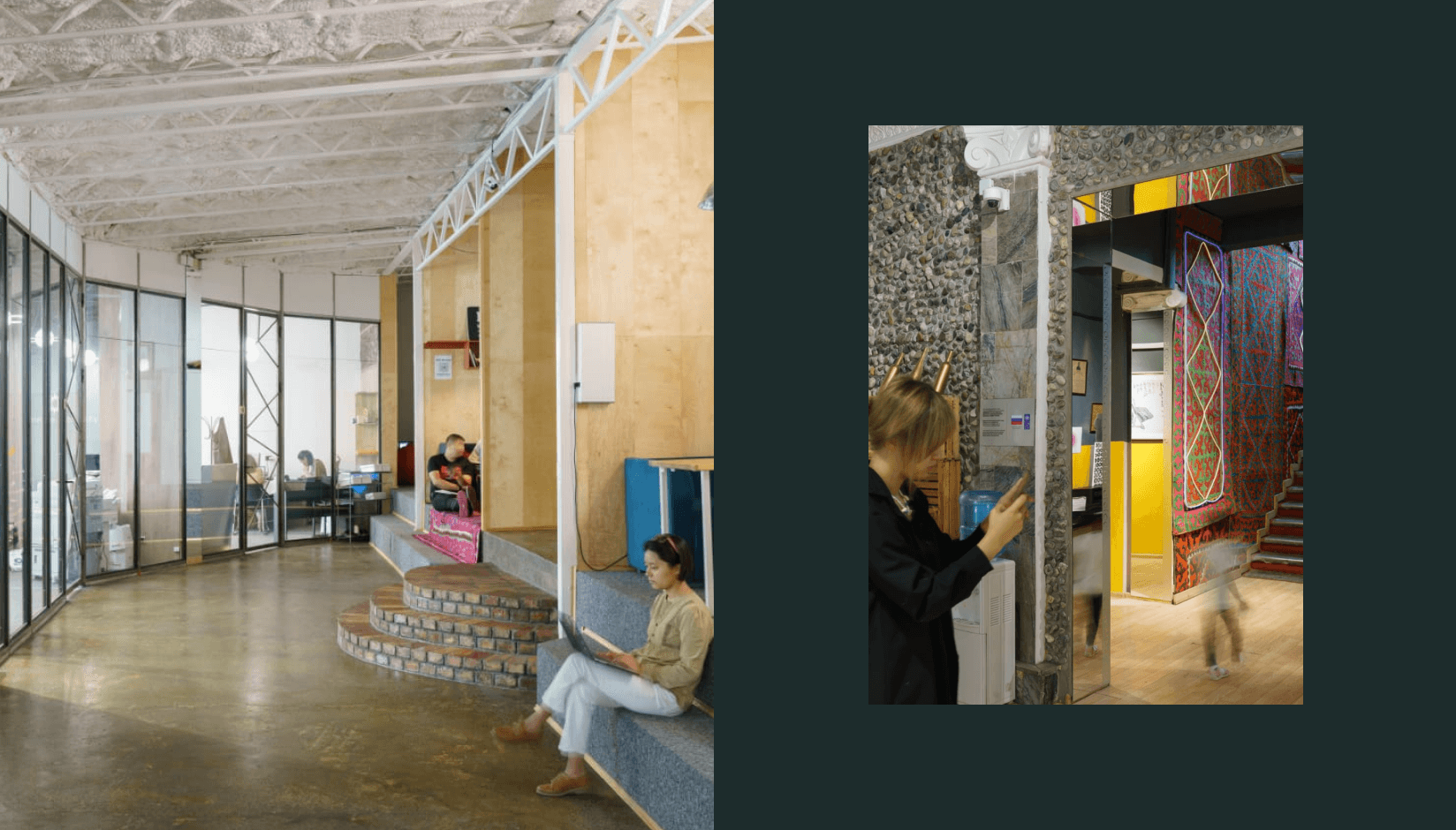
However, developing countries face unique challenges. For example, Kyrgyzstan is a landlocked country, and exporting products to other countries is expensive due to logistics costs. We have, therefore, shifted our focus to intangible products that don't require transportation, such as computer games.
Our dream for Kyrgyzstan is to have its first unicorn company by 2030. However, we understand that it is not about raising a specific company but building an ecosystem that will raise many successful startups. We believe that by providing safe spaces for innovators to create new ideas, we can create an ecosystem that will help many companies succeed.
8. Tell us about the social impact that ololo is making.
As an advocate for the creative industries in Kyrgyzstan, I was determined to find a way to support the growth of innovators and creatives in my country. Inspired by the success of the High-Tech park, a special tax regime for IT companies in Kyrgyzstan, I proposed a similar tax regime for all creative industries, including architects, musicians, radio personnel, and people in advertising. Currently, many creative professionals work in the informal sector due to high taxes and an outdated tax system inherited from the Soviet Union.
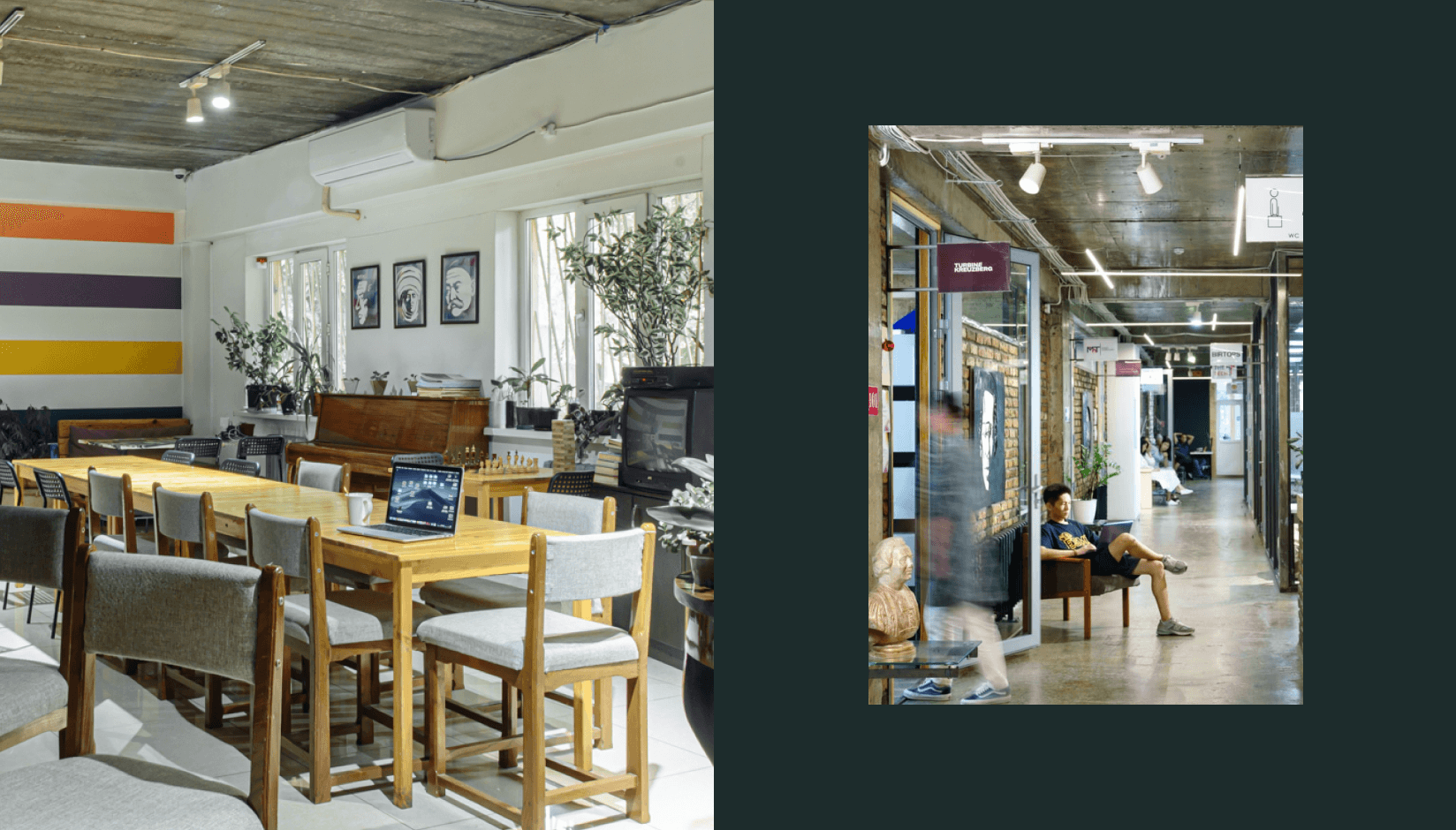
After convincing the government and the President's team, we were able to issue a decree and adopt a concept for creative economy development. I then wrote a law on the Creative Industries Park, which was accepted by the government, and parliament and signed by the President. Now, we are working on the bylaws, and the park is set to start working in the second quarter of this year.
The law is a significant step toward supporting the creative industries in Kyrgyzstan and promoting their growth. It was my idea, and I was able to organize a team of lobbyists to promote it. The association of creative industries that we built is the strongest in Central Asia and is already inspiring neighboring countries to adopt similar laws.
As a result of our efforts, Kyrgyzstan is becoming known for its creative talent, and we hope to see many more innovative and creative individuals from our country gaining recognition on the global stage. I am excited to share our knowledge and experience with other countries in workshops, such as the one I will be attending in Kazakhstan next week. The Creative Industries Park is a significant achievement, and I believe it will serve as a model for other countries looking to support their creative industries.
9. What do you think is the unique offer that ololo provides to the market?
I think what makes ololo unique is the safe space it provides for creative people. Creative people need a safe space where they can be free to be themselves and pursue their passions. I remember talking to a lady who had been using one of our coworking spaces for over a year. When I asked her what she found valuable about it, she said that the main value was that nobody asked her why she wasn't married. In our country, people think it's normal to ask such questions, but it can be triggering for highly educated people, especially creative ones. Ololo provides a safe space where people can work without worrying about such things.
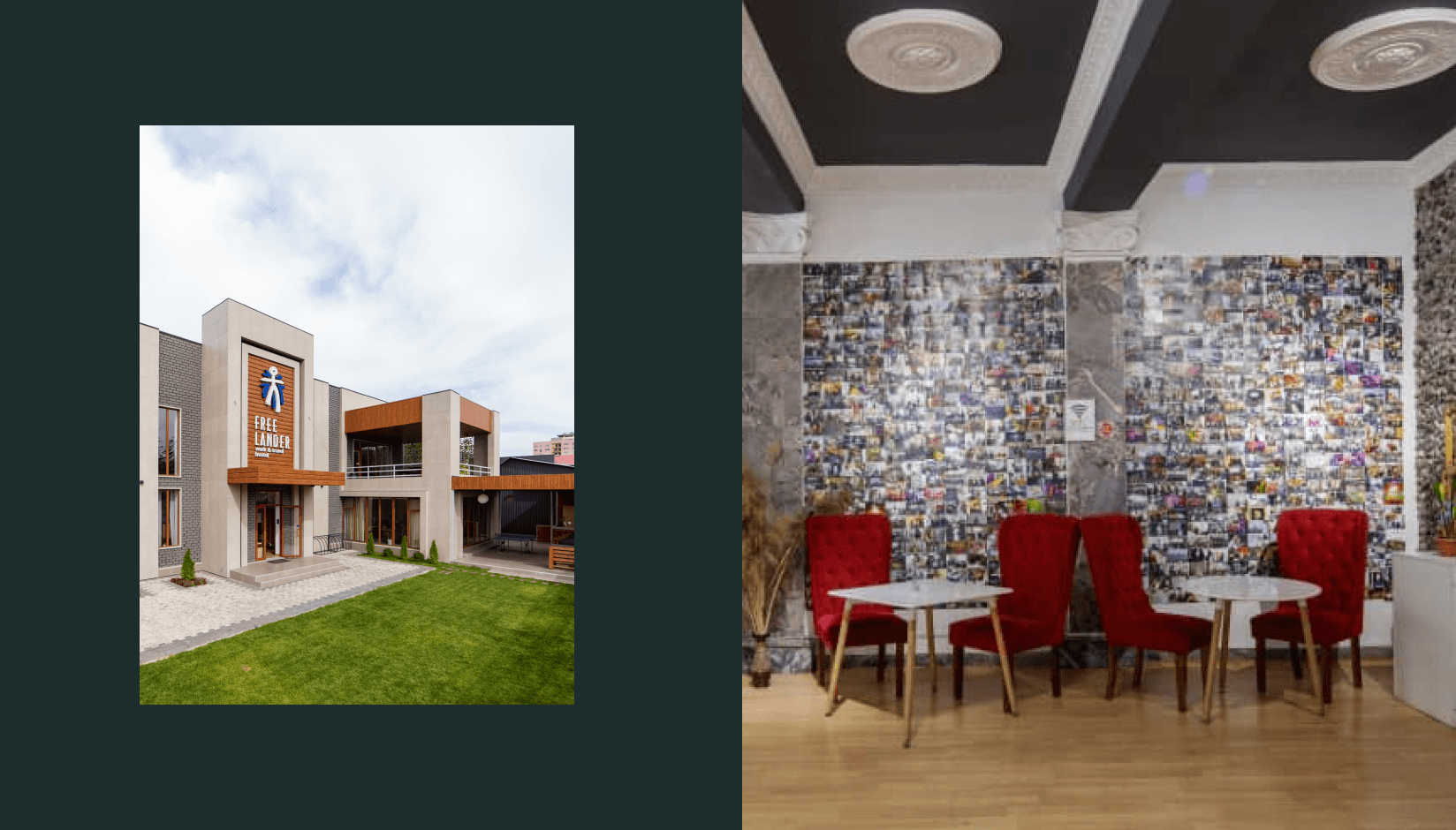
We have a strict process for filtering requests we receive from people who want to rent our coworking spaces or offices. We ask them several questions to understand what type of business they have, what kind of people they are, and whether their business is appropriate for our community. We only allow people who align with our values and goals to become part of our community. We don't just accept anyone who has money to rent space because we believe in moderating our community and protecting our members from toxic people and businesses.
When we created ololo, we wanted to create a safe space where people could pursue their passions without fear. We wanted to create an environment where people felt loved and inspired, where they could do what they loved and be surrounded by people who loved what they did.
Our mission is to have less fear and more love.
We believe that too many people make decisions based on fear rather than what they love, and we want to change that. When people enter our space, they immediately feel a special atmosphere, something different from what they see outside. It's a space where people feel free to be themselves, pursue their passions, and be surrounded by like-minded individuals.
10. What's your vision of the future for ololo?
As a digital nomad-focused company we are targeting people who love to move around and feel that the world is their playground. We believe that in the future, there will be more and more people who will be moving from the global north to the global south to have a simpler but more quality life.
Our goal is to build an ecosystem for digital nomads around the globe, but our focus is specifically on the global south.
We won't be expanding to Europe or the US, but instead, we want to be present in places like Indonesia, Vietnam, Argentina, Chile, Brazil, Portugal, Egypt, and Turkey.
We believe that in the future, this type of lifestyle will be very desirable, where you can move around the globe and have one safe ecosystem to rely on in every place. Our spaces will offer everything you need to live and work, from a place to stay to food to basic necessities. And once your basic needs are taken care of, you can venture out and immerse yourself in the local culture and community.
So, that's our vision for ololo — a safe and reliable ecosystem for digital nomads in the global south, where you can move around the world and have everything you need in one place.
11. Is there anything else you would like to share with us?
As for the future, I believe that there will be a shift towards spaces that not only serve as coworking areas, but also as living spaces. These spaces will be unlike hotels, business centers, or hostels, they will be something entirely new. However, we are still struggling to come up with a good name for them. Currently, we refer to them as Creative Hubs, but I don't think this name fully encompasses the idea.
I think the future will require us to provide our members with more than just a place to work, we need to build entire ecosystems around them. This will be a global movement, with companies creating these spaces in many different locations around the world. I envision many hotels, business centers, and even hospitals transforming into these types of spaces. It's a fascinating task to create a new category of spaces that will provide digital nomads with everything they need to live and work comfortably, and I'm excited to be a part of it.
Thank you for joining us on this incredible journey to explore the world of coworking and entrepreneurship. It has been an honor to speak with Daniar Amanaliev from ololo Creative Hub in Kyrgyzstan and learn about his inspiring vision for the future of coworking in the region.
But this is just the beginning! Our next stop is LAMB Work—a Stockholm workspace focused on well-being and sustainability. We are excited to bring you more engaging discussions and unique perspectives from coworking leaders around the world.
Don't miss out on our upcoming episodes by signing up for our newsletter, following us on social media channels for all the latest updates and interviews, and checking our Podcast page. As always, Coworking Smarts is your go-to resource for all things coworking, so be sure to check back regularly for more cool stuff. Thanks for joining us, and we'll see you next time! and checking our Podcast page



